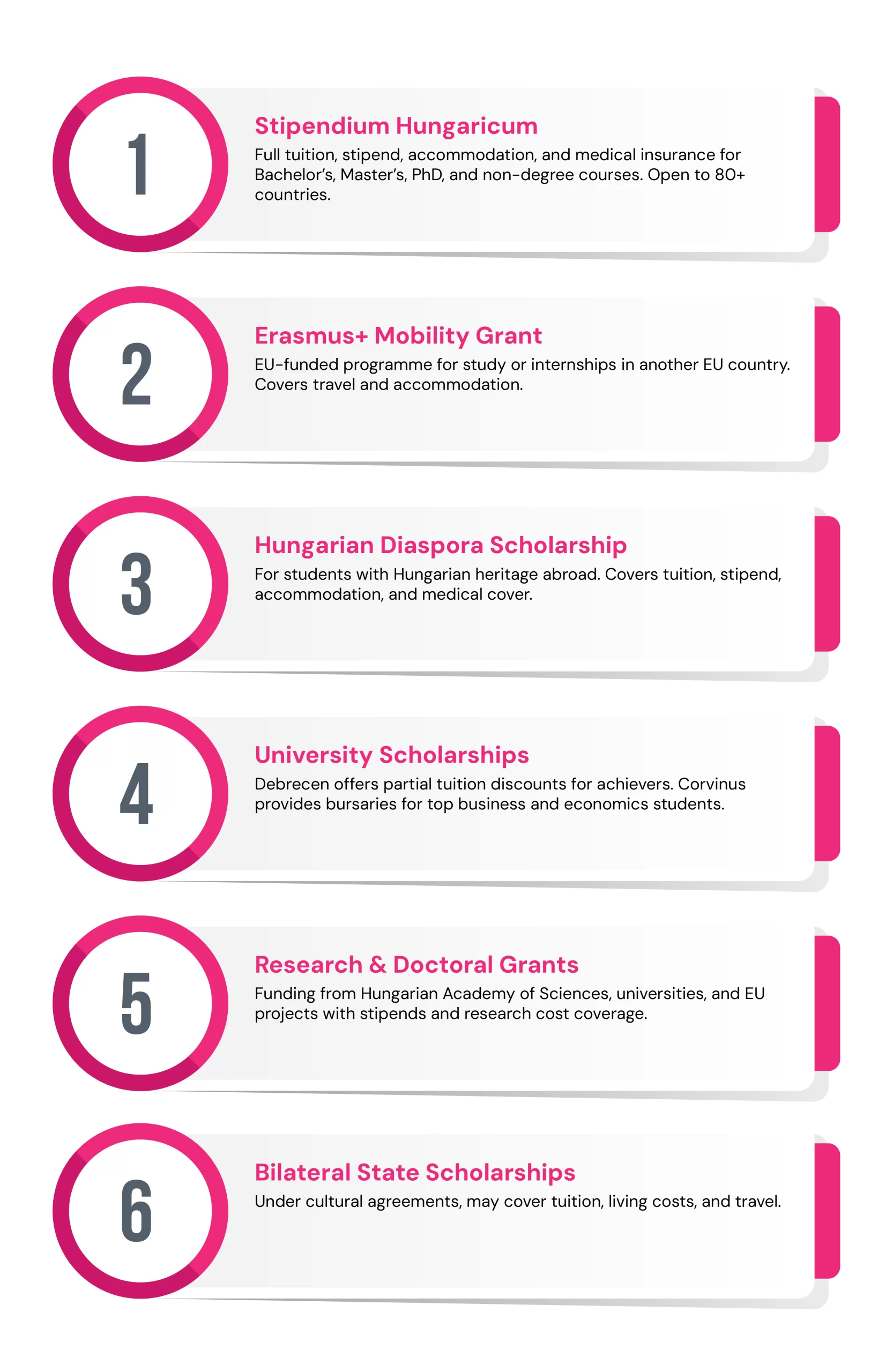Admission Process for Ivy League Universities: Why Premium Counselling Changes Everything
Study in Hungary: Your Guide to Affordable, High-quality European study

When life as an abroad education in Europe comes to your mind, the first thing that may occur to you is countries like the UK, Germany, or France. But there is a gem in the heart of Central Europe that is rapidly emerging on the world map of education – Hungary. Hungary has a wealth of history, architecture, a vibrant café culture, and thermal baths and is, of course, also home to some of the oldest and most prestigious universities in Europe. Studying in Hungary has become a newly popular option for students looking to blend a high academic standard of learning with cultural experience and affordable education in recent years.
In this guide, we’ll cover all the important information you need to know about studying in Hungary, including why this country is a good scholarly option, tuition fees, the Best Universities and Popular Courses, visa and residence permit regulations, and what life as an international student is like. You will end up with a clear roadmap of Hungary as an educational destination and be able to draft a detailed decision tree on whether it is the right place to pursue your higher studies.
Reasons to Study Abroad in Hungary
Students are advised to check out the list of reasons to study abroad in Hungary mentioned below:
Globally Recognised High-Quality Education
Hungarian universities fall within the European Higher Education Area (EHEA) and are Bologna-compliant, so the degree you obtain is internationally recognised.
Low Tuition Costs about Western Europe
Hungary has very low tuition fees compared to countries such as the UK, France, or Germany, and the lowest fee-paying courses may begin as low as €1,500 a year, while still maintaining very high standards in teaching and resources.
Broad Choice of English-Language Programmes
There are hundreds of bachelor’s, master’s, and doctoral degree programmes taught in English, in disciplines including medicine, engineering, information technology, business, arts, and natural sciences.
Generous Academic Opportunities
The Stipendium Hungaricum scholarship covers full tuition, includes a monthly stipend, accommodation support, and health insurance, making studying in Hungary nearly tuition-free.
Easy Travel within Central Europe
Hungary’s location makes it inexpensive and accessible to other countries in Europe, particularly for students wishing to travel during holidays.
Rich Culture and Vibrant Student Life
From a lively nightlife and cultural events such as the Sziget Festival in Budapest to ancient towns such as Pécs and Debrecen, Hungary offers a dynamic combination of cosmopolitan and traditional culture.
Safe and Friendly to International Students
It is always wise to study in a country that is generally safe and welcoming. Hungary is one of those countries.
Popular Courses Offered in Hungary
Hungary has a wide variety of programmes at undergraduate, postgraduate, and doctoral levels, with a significant number available in English. The nation is particularly renowned in certain subjects that enrol thousands of foreign students annually. These are some of the most popular fields of study:
Medicine and Health Sciences
Hungary is well established in medical education and tends to attract students from Europe, Asia, Africa, and the Middle East.
Engineering and Technology
Top technical universities provide industry-relevant, industry-linked engineering degrees in various specialisation areas.
Business, Economics, and Management
Expatriate-focused business schools offer EU-standard business training in finance, management, and entrepreneurship.
Natural Sciences and Environmental Studies
Universities have strengths in research-oriented courses in biology, chemistry, physics, and environmental studies.
Agriculture and Veterinary Science
Hungary has a long and solid agricultural heritage, with research training available in agriculture, food technology, and veterinary medicine.
Arts, Humanities, and Social Sciences
There are various programmes in history, literature, politics, and the arts, which have developed in the culturally rich cities of Hungary.
Scholarships to Study in Hungary

How to Study in Hungary?
Research Programmes and Shortlist Programmes
Search through universities and courses to suit your needs financially, academically, and language-wise.
Verify the Entry Requirements
Examine the academic standards, GPA, and English/Hungarian language testing requirements.
Gather Needed Documents
Collect academic transcripts, diplomas, language scores, references, and your motivation letter.
Submit through University or National Portal
Apply online through the system of the university or the central scholarship portal.
Pay Application Fees (if applicable)
Pay any required application fee, which is usually between €50–€150.
Take Entrance Exams or Interview (if necessary)
Take subject-specific tests or an online interview for some competitive programmes.
Accept Offer Letter
Receive your conditional or unconditional offer of admission from the university.
Obtain a Student Visa
File your visa application with the offer letter, proof of funds, and insurance papers.
Student Visa Process in Hungary
- Get Admission – Receive your formal offer of acceptance to a recognised university in Hungary.
- Visa Requirements – Review the rules at the Hungarian embassy in your country.
- Preparation of Documents – Gather your passport, admission letter, financial statements, health insurance, and accommodation details.
- Book an Appointment – Make a reservation at the nearest Hungarian consulate or VFS centre.
- Submit Application – Submit your documents, pay the fee, and provide biometrics.
- Await Approval – Processing can take 15 to 60 days.
- Move to Hungary – Carry all visa and entry documents.
Documents Required to Study in Hungary
- Passport (copy and original)
- Award/Admission letter (Scholarship)
- Residence application follow-up (Appendix 14 as required)
- New passport-sized photos (unused)
- Proof of Hungarian accommodation
- Proof of funds / bank statement / sponsor letter
- Health cover records
- Accredited translation of academic records
- Visa/residence processing fee (by cash or online as stated)
Conclusion
Studying in Hungary means combining excellent education, low living costs, and a great cultural experience in the heart of Europe. Whether it’s the appeal of its outstanding universities, the wide range of programmes, or the charm of cities such as Budapest or Debrecen, Hungary can be the ideal starting point for your academic and professional journey. With proper admission, scholarship applications, and visa formalities, your dream of studying abroad can be achieved in just a few steps.
Whether you are just beginning your research or are ready to submit your documents, MetaApply IE helps you navigate the process of studying in Hungary more easily, quickly, and with far less stress.
Frequently Asked Questions
Yes. Hungary provides recognised degrees, affordable education, and a welcoming, secure study environment for students from over 150 countries.
Yes. International students are allowed to work a maximum of 20 hours per week during the academic term, and full-time during scheduled breaks.
Not necessarily. Most higher education institutions offer full degree programmes taught in English, but knowing some Hungarian will enhance your work and lifestyle experience.


















































